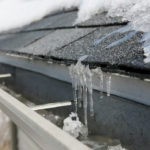
A Closer Look at Whether Attic Fans Really Work
If you own your own home, you are probably always looking for ways to improve your home’s energy efficiency. One option that’s often discussed is the installation of an attic fan. Attic fans are designed to help regulate the temperature and humidity levels in your attic, which can significantly impact your home’s overall energy usage. But do attic fans work? In this article, we’ll examine the science behind attic fans, the different types available, and whether they’re worth the investment.
Introduction to Attic Fans and Their Purpose
Let’s start with the basics. What exactly is an attic fan, and what is its purpose? An attic fan is a ventilation system installed in your attic to help regulate the temperature and humidity levels. In the summertime, when the sun beats down on your roof, the temperature in your attic can soar, reaching well over 100 degrees Fahrenheit. This trapped heat can make your air conditioning work much harder to keep you and your home cool, driving up your energy bills.
By installing an attic fan, you can help remove some excess heat, making it easier for your AC to do its job.
In addition to helping regulate temperature, attic fans can also help control humidity levels. When the air in your attic gets too humid, it could create mold and mildew, which will cause health problems and damage to your home. An attic fan can help prevent these issues by removing moisture from the air.
Different Types of Attic Fans

There are two popular types of attic fans: electric and solar-powered. Electric attic fans are powered by electricity and are typically installed in the gable or roof vent of your attic. They work by sucking hot air from your attic and expelling it outside. As the name suggests, solar-powered attic fans are powered by the sun. They have a solar panel that grabs energy from the sun and then powers the fan. These fans are typically installed on the roof and can be another option if you’re looking to reduce your energy usage.
Do Attic Fans Really Work? Examining the Science Behind It
Now that we’ve covered the basics of attic fans, let’s get to it: do they work? The answer is yes, but there are some important things to remember.
First, it’s essential to understand that attic fans aren’t a magic solution to all your energy problems. They can help regulate the temperature and humidity levels in your attic, but they won’t solve the underlying issues causing those problems. For example, if your attic needs to be properly insulated, installing an attic fan will do little good.
That said, scientific evidence supports the use of attic fans. A study completed by Florida Solar Energy Center said that attic fans can reduce attic temperatures by as much as 10 degrees Fahrenheit. This can significantly impact your home’s overall energy usage, especially during the hot summer months. The study also found that attic fans can help reduce energy consumption by up to 15% when used in conjunction with proper attic insulation and ventilation.
Factors to Consider Before Installing an Attic Fan

Before you rush out to purchase an attic fan, there are several factors you’ll want to consider. First and foremost, you’ll want to assess the condition of your attic. If your attic needs to be properly insulated or ventilated, installing an attic fan will do little. You’ll need to address these underlying issues first.
You’ll also want to take into consideration the size of your attic. Attic fans come in different sizes and capacities, and you’ll want to choose one that’s appropriate for the size of your attic. Installing a little fan will only do a little good, while installing a large fan can lead to other problems, such as negative pressure in your attic.
Finally, you’ll want to consider the climate in your area. Attic fans are most effective in hot, humid climates, where they can help remove excess heat and moisture from your attic. If you live in cooler weather, an attic fan may be less effective, and you may be better off focusing on other energy efficiency improvements.
Are Attic Fans Worth It? Cost-Benefit Analysis
One of the homeowners’ most important questions about attic fans is whether they’re worth the investment. This depends on a few things.
On the one hand, attic fans can help reduce your energy bills by regulating your attic’s temperature and humidity levels. They can also help the life of your roof by reducing the buildup of heat and moisture. However, the upfront cost of installing an attic fan can be significant, especially if you opt for a solar-powered model. You’ll need to weigh the potential energy savings against the installation cost to determine whether an attic fan is a worthwhile investment for your home.
Are Solar Attic Fans Worth It? Pros and Cons
If you’re considering installing an attic fan, you may wonder whether a solar-powered model is worth the investment. Solar attic fans have several advantages over electric models. First and foremost, they’re much more energy-efficient since the sun rather than electricity powers them, and this will help reduce your electric bill and your carbon footprint.
In addition, solar attic fans are easy to install since they don’t require any electrical wiring. They also last longer than electric models since they don’t have moving parts that can wear out over time.
However, there are some downsides to solar attic fans as well. For one, they can cost more than electric models, although the cost has decreased in recent years. They’re also less effective in cloudy or overcast weather, which can be problematic in some areas.
Does Putting a Fan in the Attic Really Help? Alternative Solutions for Improving Energy Efficiency

While attic fans can undoubtedly help improve your home’s energy efficiency, they’re not the only option available. You can take several other steps to reduce your energy usage and lower your bills.
One option is to improve your attic insulation. If your attic needs to be adequately insulated, it will allow hot air to seep into your home, making your AC work harder than it needs to. By adding more insulation to your attic, it will help keep the hot air out and the cool air in.
Another option is to seal any air leaks in your home. Air leaks will occur around doors and windows, as well as in your attic and crawl space. By sealing these leaks, you can help prevent hot air from entering your home and keep cool air inside where it belongs.
Finally, consider upgrading to a more energy-efficient air conditioning system. Newer models are designed to be much more efficient than older ones, which can help you save money on your energy bills over time.
Installation and Maintenance of Attic Fans
If you do decide to install an attic fan, it’s important to do so correctly to ensure it works as intended. Here are a few tips for installation and maintenance:
- Follow the instructions carefully when installing the fan.
- Make sure the fan is appropriately sized for your attic.
- Keep the area around the attic fan clear of debris to ensure proper airflow.
- Clean the fan periodically to remove any dust or debris that may have accumulated.
- Check the fan regularly for signs of wear or damage, and replace it if necessary.
Attic Fan Safety Considerations
Finally, it’s important to keep safety in mind when installing and using an attic fan. Here are some safety tips to keep in mind:
- Always turn off the main power before installing or working on an attic fan.
- Wear appropriate safety items, such as gloves and eye protection, when installing or working on the fan.
- Make sure the attic fan is securely attached to the roof or gable vent to prevent it from coming loose in high winds.
- Keep children and pets away from the fan to prevent injury.
Conclusion – Making an Informed Decision About Attic Fans
So, do attic fans work? The simple answer is yes, but with any home project, there are many things to consider before you decide whether to install one. Ultimately, the decision will come down to a cost-benefit analysis. Live in a hot, humid climate, and your attic is adequately insulated and ventilated. An attic fan can be an excellent investment that will help you save money on your electric bill and add life to your roof. However, if you live in a cooler area or your attic has underlying issues that must be addressed first, an attic fan may not be worth the investment.
As with any home improvement project, it’s essential to research and make an informed decision. By weighing the pros and cons of attic fans and considering alternative solutions for improving your home’s energy efficiency, you can make the best choice for your home and your budget.



